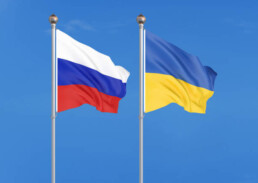
The wheat politics of Russia and Ukraine have had a significant impact on Africa, both positive and negative. These two countries are major exporters of wheat, and their policies, production levels, and export dynamics have influenced food security, domestic markets, and agricultural development in various African nations. However, this influence has not always yielded beneficial outcomes, and addressing these challenges requires exploring alternative strategies and potential solutions.
Russia and Ukraine are known as the breadbaskets of Europe, producing vast quantities of wheat every year. Their agricultural policies and export competitiveness significantly affect global wheat prices, including those in Africa. In recent years, increased competition and improved efficiency in the wheat sector of these countries have resulted in expanded production and lowered prices, benefiting African consumers by making wheat more accessible and affordable. Reduced prices have played a vital role in enhancing food security in Africa, where wheat is a staple food and a primary source of nutrition.
However, the impact of Russia and Ukraine’s wheat politics on Africa is not solely positive. The fluctuation of wheat prices on the global market has created both opportunities and challenges for African wheat producers. When international wheat prices are low, domestic wheat farmers in Africa struggle to compete and may face difficulties in selling their produce. As a result, this discourages domestic cultivation and negatively affects the long-term growth and self-sufficiency of African agricultural sectors. Therefore, while African consumers benefit from lower prices, the livelihoods of local farmers are at stake.
Furthermore, dependence on wheat imports from Russia and Ukraine poses a risk to African food security. Due to the dominance of these countries in the global wheat market, any disruption in their export capacity, whether caused by geopolitical tensions, trade restrictions, or climate related challenges, could have severe consequences for African countries heavily reliant on imported wheat.
This vulnerability was clearly demonstrated in 2010 when a severe drought in Russia led to a substantial decrease in its wheat production and subsequent export restrictions. As a result, African nations faced skyrocketing wheat prices and scarcity, exacerbating food insecurity in the region.
Addressing the challenges posed by the wheat politics of Russia and Ukraine requires exploring alternative strategies and potential solutions. African nations can invest in improving domestic wheat production capabilities through technological advancements, enhanced farming practices, and infrastructural development. By increasing productivity and reducing dependence on imports, African countries can mitigate the risks associated with global price fluctuations and export disruptions.
Furthermore, regional cooperation among African nations can play a crucial role in mitigating food security risks. By fostering intra-African trade in wheat and other agricultural commodities, countries can diversify their import sources, reducing reliance on any single country or region. Moreover, collective action can strengthen the bargaining power of African nations in global markets, enabling them to negotiate better terms of trade.
Lastly, increased investment in research and development is crucial for boosting agricultural productivity in Africa. This involves developing drought-resistant wheat varieties better suited to the continent’s climate and investing in irrigation infrastructure to mitigate the risks posed by irregular rainfall patterns. By embracing innovative agricultural technologies and sustainable practices, African countries can enhance their agricultural capacities and reduce dependence on imported wheat.
It is certain that the wheat politics of Russia and Ukraine have a profound impact on Africa and while lower global wheat prices benefit African consumers, they pose challenges for domestic farmers and food security. Addressing these challenges requires investment in domestic wheat production, regional cooperation, and research and development. By enhancing African agricultural capabilities and reducing dependency on imported wheat, African nations can mitigate the risks associated with global price fluctuations and export disruptions, ultimately improving food security and fostering sustainable agricultural development.